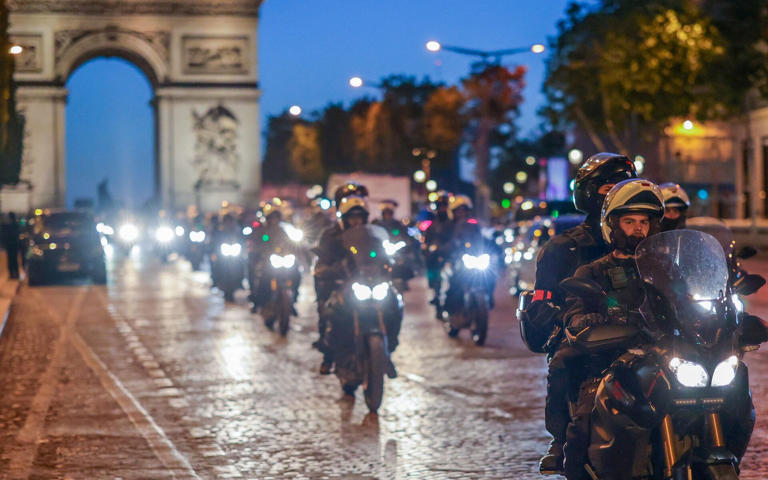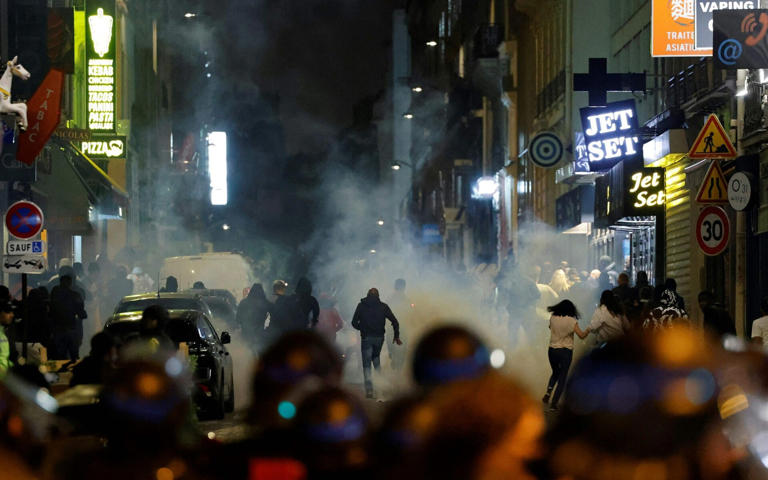French soldiers keep watch early on Monday as they secure the area near the Arc de Triomphe in Paris – Shutterstock© Shutterstock
he grandmother of the French teenager shot dead by police during a traffic stop has made a desperate plea for rioters to stop as dozens more were arrested across the country on Sunday.
The violence appeared to be declining with 78 people arrested nationwide on Sunday, the interior ministry said, down significantly from 719 arrests on Saturday.
The grandmother of 17-year-old Nahel, identified only as Nadia, said in a telephone interview with French news broadcaster BFM TV: “Don’t break windows, buses … schools. We want to calm things down.”
“I’m telling them to stop,” she said.
“Nahel is dead. My daughter is lost … she doesn’t have a life anymore.”
Nadia said she was angry at the officer who killed her grandson but not at the police in general and expressed faith in the justice system as France faces its worst social upheaval in years.
President Emmanuel Macron held a special security meeting on Sunday night and plans to meet with the heads of both houses of parliament on Monday and with the mayors of 220 towns and cities affected by the protests on Tuesday, said a participant in the meeting, who spoke anonymously.
The official said Mr Macron also wants to start a detailed, longer-term assessment of the reasons that led to the unrest.
Mr Macron delayed what would have been the first state visit to Germany by a French president in 23 years, which had been scheduled to start on Sunday evening, highlighting the gravity of the unrest.
More than 3,000 people have been detained overall and hundreds of police and firefighters have been injured in the violence. Authorities have not disclosed how many protesters have been wounded.
French authorities were appalled on Sunday after a burning car struck the home of the mayor of the Paris suburb of L’Hay-les-Roses. Mayor Vincent Jeanbrun said his wife and one of his children were injured in the 1.30am attack while they slept and he was in the town hall monitoring the violence.
Life in some parts of France went on as usual on Sunday. In the capital, tourists thronged to the Eiffel Tower, where workers set up a nearby clock counting down to next year’s Paris Olympics.
A short walk from Nanterre, a shopping mall bustled Sunday with customers from all walks of life. But in the empty square where Nahel was shot, someone had painted “The police kill” on a bench.
At the foot of a bridge near the Eiffel Tower where generations of couples have attached padlocks to symbolise lasting love, a Senegalese man selling cheap locks and keys shook his head when asked if Nahel’s killing and the ensuing violence would change anything.
“I doubt it,” he said, giving only his first name, Demba, for fear of retaliation. “The discrimination is too profound.”




